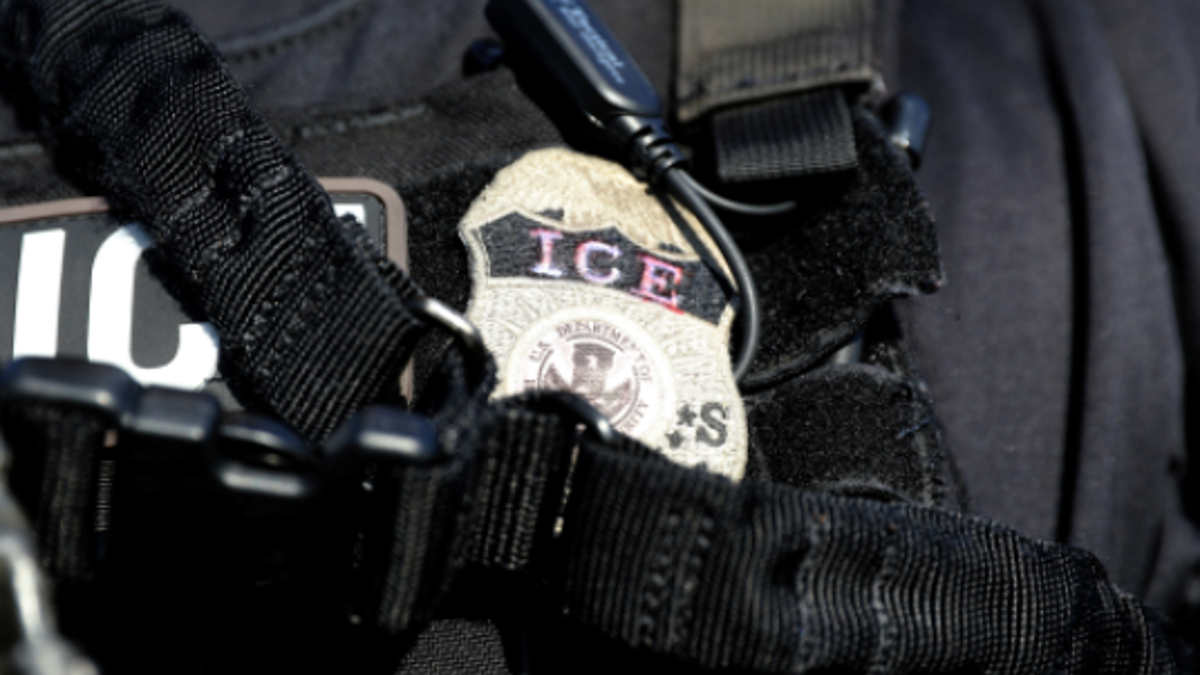
U.S. Immigration and Customs Enforcement (ICE) badge. (Reuters)
A black female federal immigration agent in New Mexico accused a police department of racial profiling after being repeatedly pulled over by sheriff's deputies with no probable cause.
A lawsuit was filed Tuesday by the American Civil Liberties Union of New Mexico on behalf of Sherese Crawford, 38. The U.S. Immigration and Customs Enforcement (ICE) deportation agent, accused the Bernalillo County Sheriff's Department of racial profiling.
The agent claims to have been stopped three times – twice by the same deputy – with no probable cause. She was first stopped in April on suspicion of driving a stolen car, despite using a rental vehicle provided by her agency, the lawsuit said.
Bernalillo County Sheriff's Deputy Patrick Rael then pulled over Crawford later that month for tailgating. Rael recognized the agent’s name and said that an officer with her federal agency and a sheriff's deputy present at the first stop said she had an “attitude,” the lawsuit alleged.
The sheriff’s deputy stopped the agent again days later, this time for driving too slow. None of the stops led to warnings or citations.
"Our client is an accomplished federal agent who was targeted for driving while black," said ACLU of New Mexico attorney Kristin Greer Love. "BCSO unlawfully and repeatedly stopped her because she fit a racial profile. Targeting people because of the color of their skin is unconstitutional and bad policing."
"Targeting people because of the color of their skin is unconstitutional and bad policing."
The Bernalillo County Sheriff's Department declined to comment amid pending litigation. The department takes seriously any accusations of racial profiling in policing and deputies who witness such incidents are required to report them to the supervisors.
The lawsuit comes as the Bernalillo County deputies are under scrutiny by civil rights groups and activists following the involvement in nine shootings in four months.
Sheriff Manuel Gonzales was also criticized after saying no one provided him data saying body camera on deputies would make the community safer.
He told media outlets last month that he objected to body cameras because the media would use the footage to criticize his officers, adding that the video evidence “gives a lopsided, one-sided story, which I think is a disservice to the whole community."
The Associated Press contributed to this report.

